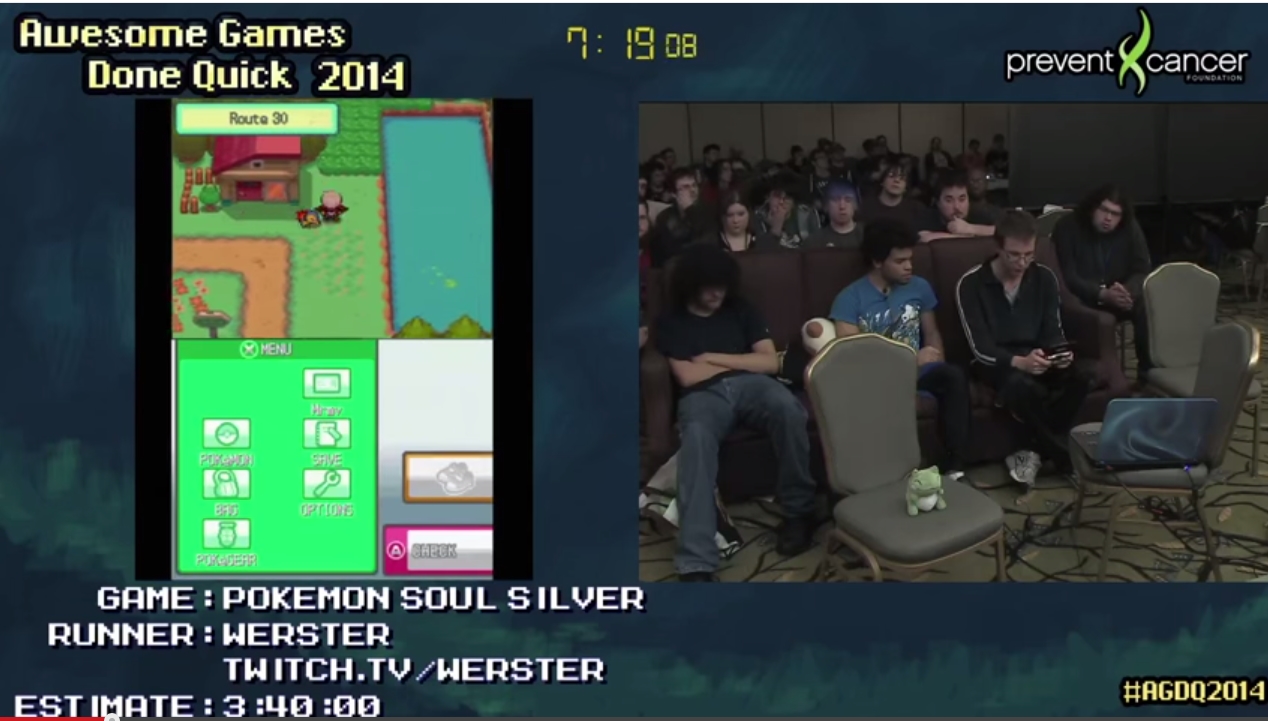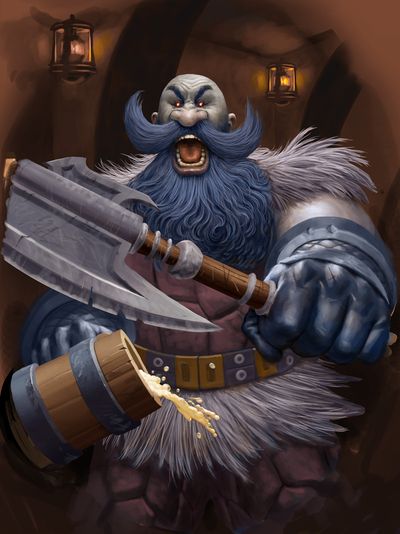Lately, I’ve been reading up about the speed-running community. For those unfamiliar, a speed-run is an attempt to complete a game (generally, start to finish with any % completion) in as short a time as possible.
What characterises these speed-runs, such as this run of Pokemon SoulSilver, is an unrelenting pursuit of efficiency. In this example, the runner goes to absurd lengths to shave his time down by precious seconds. Everything is mapped out - he knows, for example, the extent to which soft-resetting to get better stats on his starter is worth it for the overall speed of the run. Often he uses certain moves in battles specifically to avoid text such as “it’s super-effective” slowing down his run by a few frames.
Call it nerdy, but I think there’s a lot to admire about this sort of speed-run. There’s something inherently noble about the pursuit of perfection in any field - no matter how obscure. More than this, though, the mindset adopted by the speed-runner is one of complete precision. The goal is optimisation in the face of constraints - achieving the fastest possible run despite the limitations forced upon him by the game.
So how does this relate to Hearthstone? The success of a speed-run comes down to a commitment to maximising every edge the player can get. If you are striving for perfection in Hearthstone, this is the mindset you need to adopt.

Small Edges
Let me quantify this somewhat. The difference between a superb player and a merely very good one is around 5% winrate. I mentioned in my last article that, generally, the highest winrate of anyone in legend across a season is around 65%. 60% winrate - you’re a great legend player. 65% winrate - you’re Lifecoach. The difference seems pronounced, but it is, in fact, very slight.
Think about these winrates applied to 20 games. 60% over 20 games means you are 12-8. 65% means you are 13-7. The difference is 1 game in 20. That’s it. That’s the edge a strong player needs to find to get to the absolute upper limits of legend winrate. 1 game out of 20 - you need to do something that turns a loss into a win.
We can, of course, expand this analysis. Players with 55% and 50% winrate need to turn 2 and 3 games in their average 20 in order to reach the very top. I don’t mean to trivialise the difference in skill between players of 50% and 65% winrate - obviously it is considerable. But, when you put it in real terms, the degree of separation is much smaller than you might think.
Of course, this is all very easy to say. I think it’s important, though, to have a clear frame of reference before offering advice. The main implication of this philosophy is as follows. Like the speed runner, you need to take every tiny edge you can. Optimise constantly, and in every way possible. Often, your decisions won’t affect the outcomes of games, but do all you can, in every way possible, and some of them will swing in your favour.

Finding those extra wins
How do you go about maximising your win percentage? My aim with this article was not to focus on improvements in technical play (there are plenty of resources on that) but on the major mindset shifts you have to make before you can be a top player. The advice that follows, therefore, is by necessity very general, and by no means comprehensive. What follows, however, are the easiest changes you can make to improve your winrate.
Let’s start with the obvious - don’t tilt. Imagine you play perfectly for a prolonged period until you hit a run of games that, despite your flawless play, you were unable to win. If you tilt - you start playing sub-optimally out of frustration - you could potentially throw away the edge you gained from all those games of flawless play. Potentially one rash decision that turns a winnable game into a loss, and all your good work is undone.
The obvious problem has an obvious answer. Play in short bursts - devote all of your attention to the game at hand. When you no longer feel you can do this, or if your decisions are affected by frustration from a previous game, then stop playing. Boring advice, I know, but it’s true.
When results matter, play to win. This is a tricky one, since it embodies the tradeoff between playing to improve and playing to win. Say you have a choice between playing Midrange Hunter and Grim Patron Warrior. Assume Grim Patron Warrior is the better deck - played flawlessly, it will yield higher winrates. However, you cannot play Grim Patron Warrior flawlessly, and as it stands Hunter works better for you. You have a choice between winning more by playing Hunter, or winning less but possibly improving your Grim Patron Warrior play.
I’m not saying you shouldn’t play to improve - far from it, taking the hit in performance to learn a new deck is a necessary thing for every player to do. But if you are prioritising results over all else (such as in a tournament setting, or making the push for a high legend rank) then the implications are obvious. You should swallow your pride, and play what you’re good at. Accepting your limitations is necessary to improve your results.
When results don’t matter, play to improve. If you’re ever in a position where whether you win or lose does not matter at all - the start of a new season, or in a practice environment with friends - you should use the opportunity to learn new decks. Devote your efforts to learning decks that are powerful, but hard to play (Grim Patron Warrior in the previous example). Do this, and maybe you will become more proficient with Grim Patron Warrior than you were with Midrange Hunter - in the longer run, your winrate improves.

Wrapping Up
I’ve tried to approach the challenge of maximising your winrate as an economic problem, with the one constraint being skill level. Everyone is constrained by their skill level, and this necessarily places certain limits on the maximum winrate anyone can achieve. In the short run, you can maximise your winrate by removing any barriers that prevent you from playing to the best of your ability. In the longer run, you can aim to improve your skill level, and increase the upper limit on your winrate.
Think of this article as a general theory of winning. The reality is, there are no shortcuts to success, only optimisation in the face of constraints. I’ve laid out the problem - the rest is up to you.




